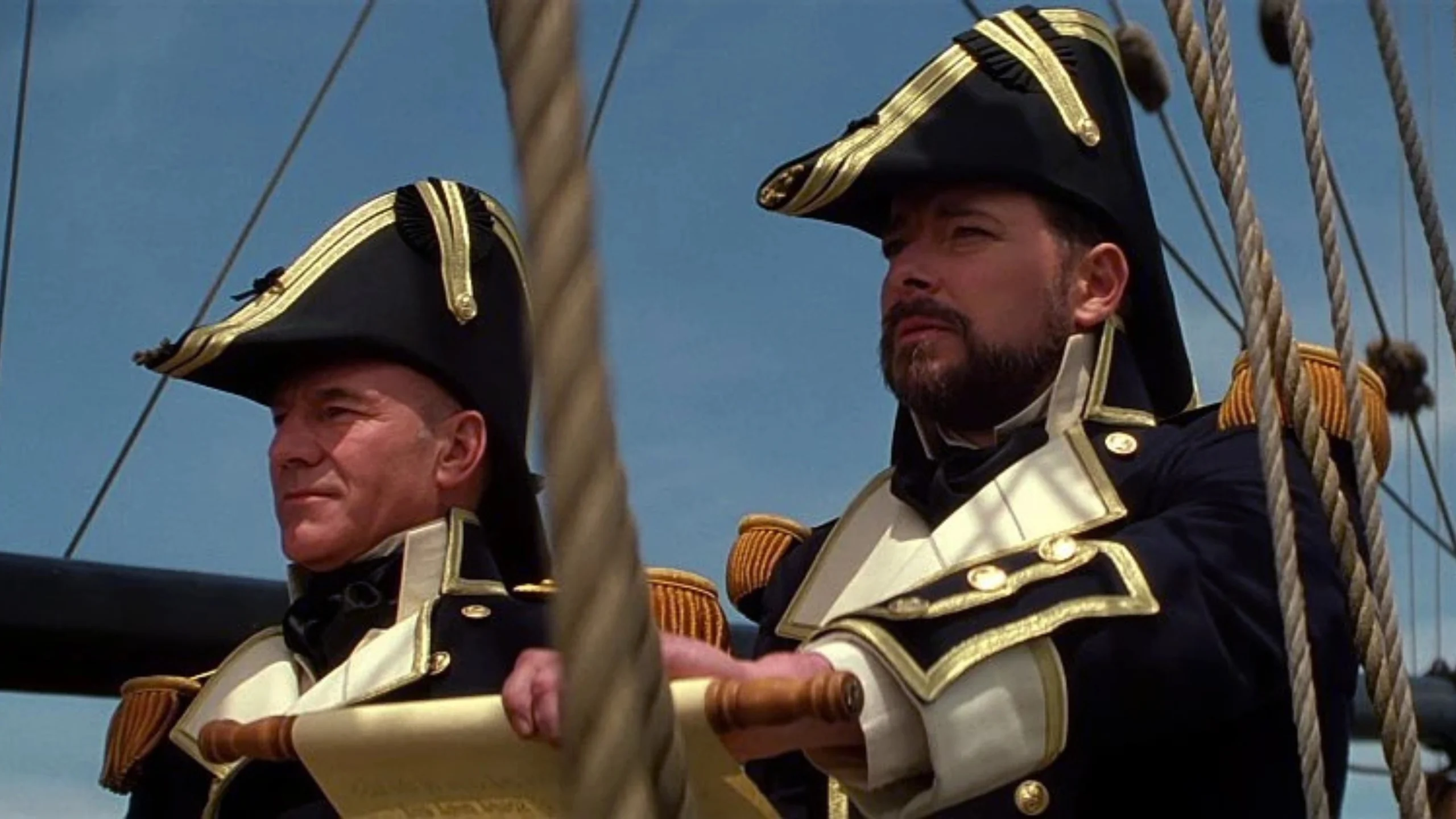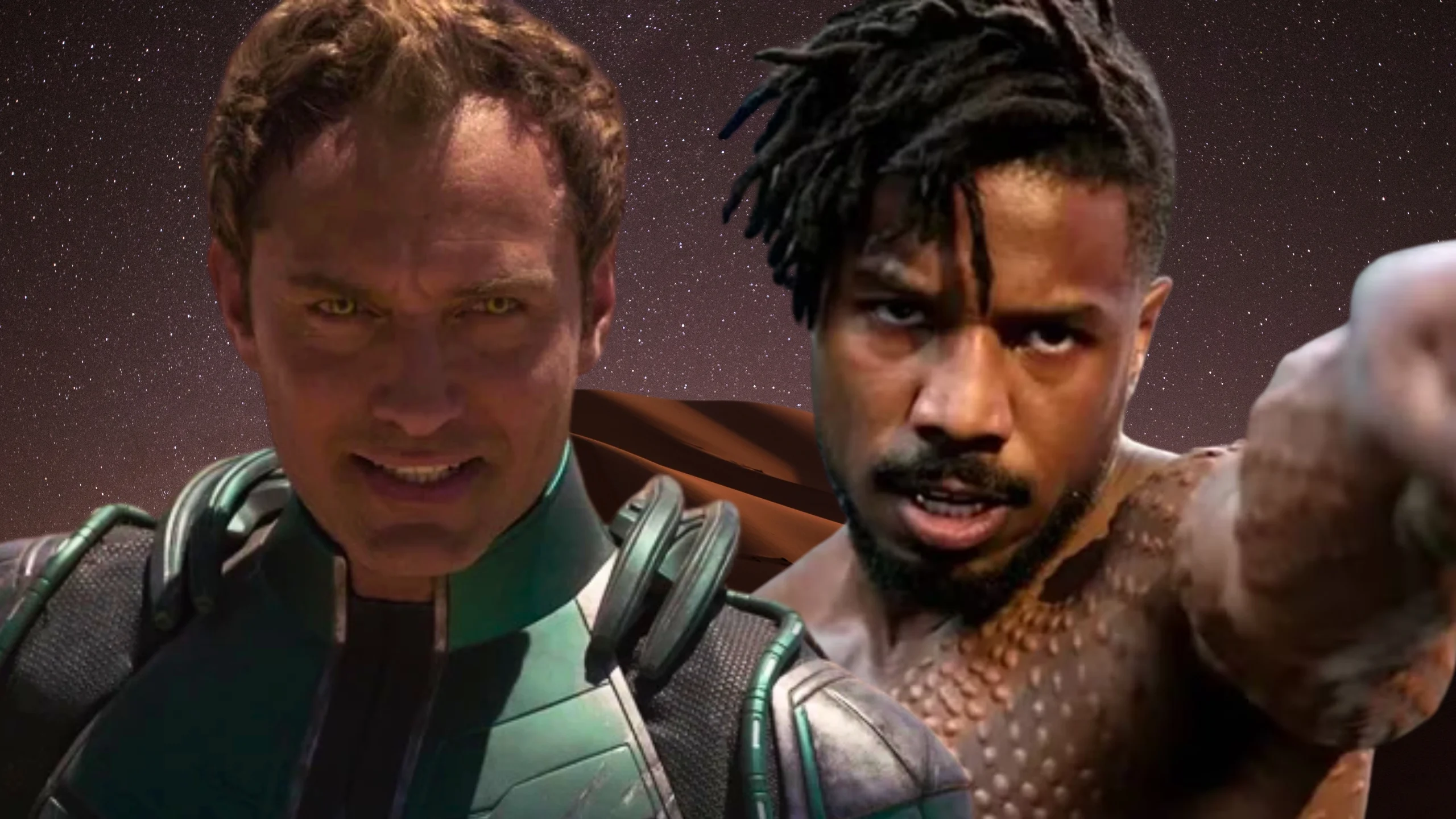I have loved Star Trek my whole life and probably always will. For the last several years however, I haven’t been able to watch a single episode of it without thinking, “Wait! This is the East India Company… in space!”
Here’s the thing. One of the clearest images that will form in your mind when you think about science fiction is that of spaceships containing people. These people are sometimes leaving Earth, sometimes coming towards Earth, and sometimes have nothing to do with Earth. But these are always journeys, and journeys are undertaken with destinations in mind. People in spaceships usually have reasons for being in them and these reasons are a huge part of the plot.
In Star Trek, this reason is stated to be exploration — “to explore strange new worlds, to seek out new life and new civilizations, to boldly go where no one has gone before.”
It sounds benign and progressive, but if we unpack this declaration even a little bit, we run into several problems that stem mostly from the cultural forces behind the idea of “exploration” and “strange new worlds” and “boldly”.
There is a kind of heroism associated with the memory of imperialism. The British Empire is seen, by many even today, as a period of glory and triumph. Such remembrance is held not only among the descendants of the White men who colonized Africa and Asia, but also many who were at the receiving end of their advances. People remember fondly all the things that the British remember themselves as “boldly” doing in “strange new worlds”.
What they were actually doing was of course something entirely different. They were engaging in cultural domination with an eye on resources and territories. They were stripping a foreign land of its resources and putting it all back into the care and upkeep of the empire that they represented.

Starfleet does the same thing. Gene Roddenberry’s galaxy-spanning storyverse has a military organisation masquerading as a peacetime armada. Star Trek’s heroes visit planets, gather information, interfere in local affairs, steal or buy resources, and even play government-makers. All this is dressed up as benevolent concern and help of course, but the big picture is clear as day.
Western culture as it exists today largely emerged from European imperialism as a way of life. London, it may be argued, was literally built with Indian resources. American adventurism, to this day, is justified by saying it is protection and aid. It is not surprising that Star Trek has an aspect that is defined by White culture’s view of itself.
I love Star Trek, but watching it as an adult brings its own rewards in the form of insights that were lost on me as a young person. It never occurred to me that the very reason one goes into space may contain information about the culture that a story emerged from. Because the European response to the world has always been that of colonizing and “exploring”, Star Trek follows the same template.
Even the Prime Directive, that one great artifact of Starfleet’s evolved sensibility, is a shadow of the “White Man’s Burden” — the idea that one culture, because it is so evolved and special, has a responsibility towards less developed cultures and should exercise that responsibility by bringing them out of the dark ages. The British did this by imposing their language and education system on people they colonized. Starfleet does it by generously offering child civilizations technology and aid, but only if the child civilization passes their test of maturity.
In both cases, the protagonist culture has conveniently identified itself as a superior entity and is now engaged in bringing others to the same level of sophistication. Only they are the givers, the saviors, the protectors. Everyone else just receives their benefaction and is grateful.
Star Trek: The Next Generation does this most often. Voyager is next in line and is redeemed somewhat because they are a ragtag crew of misfits who are stranded a long distance from home and are regularly put in the position of having to violate the Prime Directive. Deep Space 9 is kind of self-aware and has several episodes devoted to complicated interactions between the natives and Starfleet in which the problematic nature of Starfleet is paid some serious attention.
But in the end, the natives choose Starfleet and it turns out that the Federation of Planets was right all along — the lesser civilization did need their help. And Sisko’s arc as the Emissary is pretty much in the same vein as The Last Samurai, The Last of the Mohicans, Avatar, and Dances with Wolves — Sisko was the equivalent of the White savior, or in the Star Trek context, the human savior who comes in and becomes one of the natives and does with their resources what the natives themselves could not achieve because, well, they are just natives and their broad function in the narrative is that they need to be saved.

I don’t blame the makers of Star Trek. In fact, I think we lose an opportunity to understand how the world works when we limit our interactions to laying blame. But I do think that understanding is a worthy pursuit. While Star Trek is home to a lot of grand ideas that have shaped my thinking over the years, it is also home to insights about the culture that created it.
Growing up, I never thought of Hollywood as anything other than White people telling stories about White people. I took it for granted that what I see in their cinema and TV was the White / Western perspective. Now, the image of America is more multicultural and people of different origins are asserting their right to be represented in media. As an Indian living in India, it is not for me to comment on the right and wrong of it — Americans will have to figure it out for themselves. But I do think this will change the shape of American entertainment in the days to come in interesting ways.




Leave a Reply